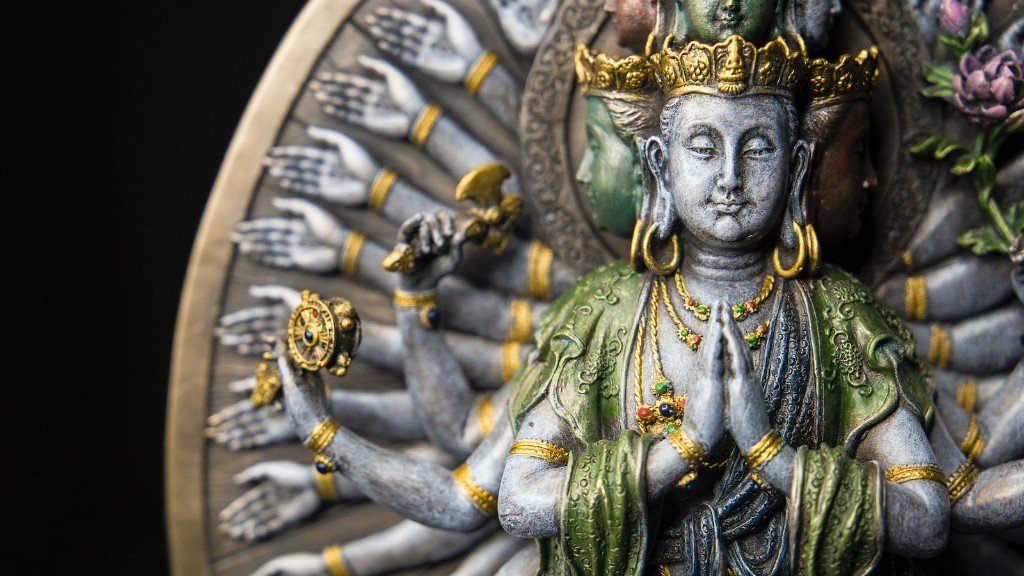The debate on homosexuality has long been a contentious issue amongst different religious denominations across the world for centuries. Christianity, a faith that is widely followed and often seen as the basis for the moral values of many societies, sets out strict rules and regulations when it comes to sexual relations, often favouring traditional heterosexual relationships.
Most Christians around the world would agree that homosexuality is not accepted in Christianity and that to be found performing such activities or having an unconventional sexuality is frowned upon. Infact, Leviticus 18:22 is considered to be one of the strongest anti-homosexual texts in the Bible and has been used by many cultural and religious institutions ever since the early church.
Despite the fact that homosexuality is indirectly condemned by the bible, it has become increasingly difficult to find conclusion on this issue as various interpretations of the scriptures and their relevance to modern life can be taken. Many Bible experts and theologians have said that although explicit verses condemning homosexuality can be found in the Bible, an incredible amount of context must be taken into account when interpreting the exact meaning of these verses, as the way ancient cultures saw and understood such matters was incredibly different from our modern understandings and definitions.
Moreover, the teachings of Jesus have led many Christians to the conclusion that homosexuality should be accepted and tolerated and that discrimination based on a person’s sexuality should never be accepted in a civilised society. Afterall, for many, the words of Jesus define the faith of a true Christian and his teachings of loving one another, regardless of gender or sexual orientation, is considered to be a core element of the faith that promotes inclusivity and acceptance.
Finally, while the stance of many Christians on homosexuality can be seen to be traditional, conservative or even homophobic at worst, there is an ever growing body of evidence that suggests that the Church’s views on the matter are changing and are becoming more accepting of individuals of all sexual orientations. For example, it is evident today that many established religious organisations are making efforts to engage and include the LGBT+ community, which can be seen as a step in the right direction.
Are LGBT+ accepted in the Church?
Over the years, many Christian churches have become more accepting of homosexuality and have amended their stance on the matter. That being said, LGBT+ individuals still have to face stigma, judgement and even marginalization from those who strive to remain true to the church’s traditional teachings.
The Church of England for example still does not allow for the blessing of same sex marriages and the archbishops of the institution have publicly expressed their disapproval for homosexual practices. Although this statement can be seen as a harsh rejection of LGBT+ rights and can be interpreted as a sign of discrimination, the Church of England also endorsed a welcoming policy that encourages inclusivity and states that homosexual members should be welcomed in the faith within certain boundaries.
For instance, the policy states that churches should provide a ‘safe environment’ for all individuals, no matter their sexual orientation and that ‘homophobia and other forms of discrimination against individuals and couples’ within the church should never be tolerated.
Moreover, some denominations, such as the Quakers, have already opened their doors to same sex couples, allowing and affirming LGBT+ marriages and even ordaining openly gay and trans individuals as priests.
Do All Christians Believe the Same?
Not all Christians are of the same opinion when it comes to LGBT+ rights and acceptance in the Church. It is an undeniable fact that there is an ever-growing divide between those for and against gay marriage, with those of a more traditional mindset tending to reject such ideas.
To illustrate this point, research conducted by the Pew Research Center in 2013 showed that, while in Protestant churches around the region of Latin America, only 10% reported to having ‘no opinion’ on LGBT+ rights, this number dropped to 5% in Protestant churches located in the USA.
Ultimately, when it comes to the matter of LGBT+ rights, the opinion of many Christians remains divided. On one hand, many believe that gay and trans communities are welcomed in the Church and, as such, same sex marriages should be offered equal opportunities and rights. On the other hand, it is also true that many religious organisations have chosen to stick to their traditional stance on the matter and have issued ordinances, policies and regulations that are explicitly against LGBT+ rights.
Can you be gay and a Christian?
The Church itself rarely offers direct dialogues on if one can be both gay and Christian. Although it has yet to provide definitive guidance on the matter, it is possible to say that being gay or belonging to any other sexual orientation is not in and of itself a sin and that most churches, in attempt to keep with the spirit and teachings of Jesus, accept that individuals of all sexual orientations can enter their doors and be welcomed just like any other member of the faithful.
To confirm this, it is important to note the example set by Pope Francis, who, throughout his pontificate, has expressed greater tolerance for homosexuals than the Church had in the past. For example, he famously said during a press conference in 2013 that “If a person is gay and seeks God and has good will, who am I to judge?”. This statement was seen by many as revolutionary for the Church and inspired many LGBT+ Catholics to come out and show their faith and pride for the institution.
Nevertheless, according to the traditional teachings of the Church itself, homosexual activities and non-traditional relationships are still seen as sinful and should, therefore, be resisted. To this extent, church teachings still require its members to remain abstinent or to practice other forms of sexual activities that don’t involve homosexuality.
The Church and its Policies
Nowadays, most churches have established certain guidelines that members must adhere to in order to remain faithful to their beliefs. These policies often include regulations on same sex marriage and activities, sometimes taking a more categorical approach in which homosexuals are actively discouraged from performing homosexual activities.
Consequently, for many churches, it matters not if someone identifies as gay or not, as it is technically expected from members to abstain from homosexual activity regardless of their sexuality. This is due to the fact that such practices are directly or indirectly forbidden in the Bible and that engaging in such activities is viewed as a form of violating the faith.
That being said, it is important to note that the Church is far from a monolith when it comes to its stance on homosexuality. In fact, the policies discussed earlier illustrate the fact that many religious entities are advocating for more tolerance towards LGBT+ individuals and communities, actively promoting a more inclusive faith that does not discriminate but instead embraces the diversity of its members.
Conclusion
It is clear from our analysis that the opinion of the Church on the subject of homosexuality oscillates between traditional and progressive. While most Christians would agree that homosexuality is not accepted by the Bible, the extent to which this opinion is applied is seemingly a matter of interpretation, as the reading and understanding of many scriptures and verses can be a grey area in the Church. Furthermore, some churches have indeed allowed LGBT+ individuals to experience a more welcome environment within their walls.

